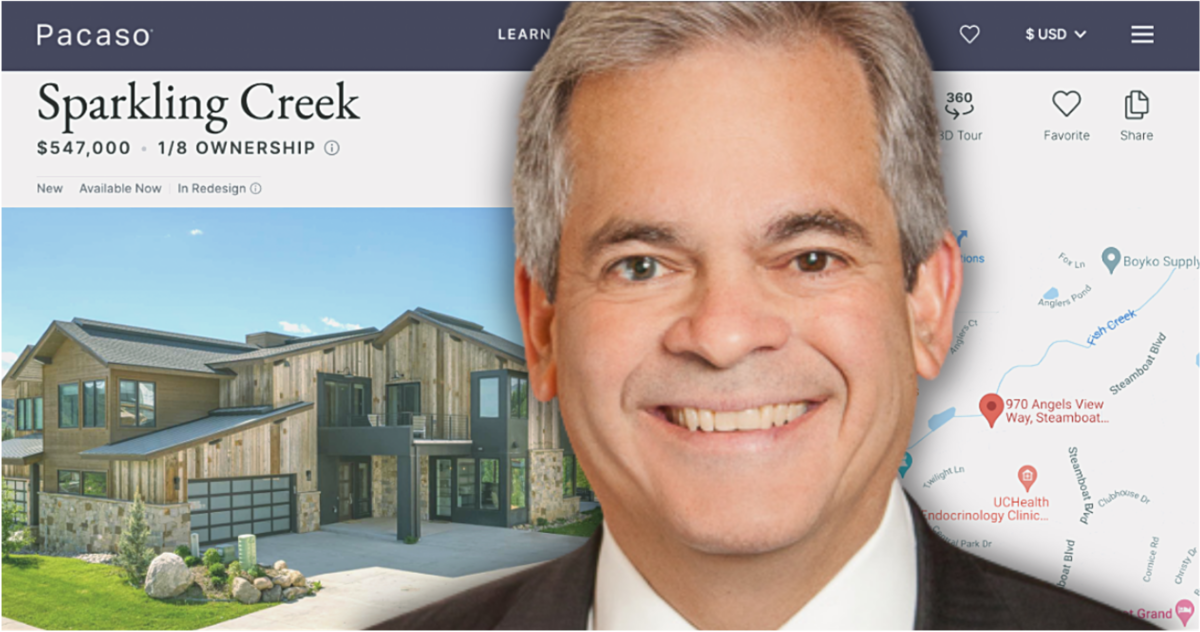
KEY POINTS:
- Austin Mayor Steve Adler has joined the advisory board of Pacaso, a controversial venture-backed tech company that acquires single-family homes and sells shares of them to vacationers and investors
- Founded by a group of former Zillow executives, Pacaso has sparked litigation in California, where the company is accused of transforming communities into “adult Disneylands”
- According to Pacaso, Adler will help shape the company’s actions around housing policy, community engagement, and more
Steve Adler hasn’t quite finished his final term as mayor of Austin, but it looks like he already has a new gig. It’s a bit of a shocker, given the lip service he regularly pays to the need for affordable housing.
According to news reports, Adler has accepted a position on the advisory board of Pacaso, a controversial San Francisco-based tech company that buys single-family homes and sells “shares” of them to vacationers and investors.
Founded by a pair of former Zillow executives, Pacaso will look to Adler for help on matters related to housing policy, community engagement, and growth and expansion.
The mayor has his work cut out for him: Soon after Pacaso’s CEO announced he would “make second homeownership a reality for the top 20 percent of the world,” the company came under fire as a “comically evil housing bubble scheme” and a “bloated tech-based parasite” profiting off the scarcity of single-family homes.
Here’s how Pacaso’s business model works: After it outbids regular buyers for a particular house, the company converts the property into a limited liability corporation (LLC), divides it into eight shares, and then re-sells each share to a Pacaso user for 12 percent of the sales price plus ongoing monthly fees.
Each shareholder has the right to visit the property 44 days per year, for up to two weeks at a stretch—similar to a timeshare—and Pacaso takes care of property management and maintenance.
To absolutely no one’s surprise, Pacaso sees itself as part of the solution rather than the problem. Backed by an eye-popping $1.5 billion in venture capital from the U.S. and abroad, the company claims it’s “helping solve the housing crisis” by putting “second homes in reach of more families.”
The company’s neighbors aren’t buying it.
Last year, Pacaso started igniting public firestorms in communities across California, Colorado, Hawaii, Utah, and the other markets it currently targets. Area residents accuse the company of worsening the national housing shortage by taking homes from regular buyers, skewing the market by overpaying for properties, and replacing local residents with rowdy tourists.
“They’re corporatizing our community. If this business model succeeds, then our town starts to become more and more like an adult Disneyland.”
— Sonoma County Resident Brad Day
“Tech ‘Unicorn’ Pacaso Is Turning Homes Into LLCs and Pissing Off the Neighbors,” Vice.com
Locals have fought back by organizing online opposition and even surrounding Pacaso properties with angry signs:
Anti-Pacaso signs courtesy of Stop Pacaso Now
Then there are the regulatory problems. Timeshares are strictly regulated in many of Pacaso’s markets, and even outlawed in some. The company insists its properties aren’t timeshares—it argues that its users buy ownership stakes in homes, not just the right to visit them at a particular time—but many local governments remain doubtful. Pacaso is currently locked in litigation over the matter with the California community of St. Helena, and the cities of Carmel, South Lake Tahoe, and Palm Springs have each sent the company letters demanding it stop local operations.
That brings us back home—and to a host of questions. Why would our mayor work with a company that sells interests in second homes when there’s a shortage of housing for working families? No Austin listings currently appear on the company’s website, but is that about to change? Finally, why announce the news now? Why not wait a few more months before joining the venture capitalists, once the election is over and Adler is out of office?
We’ll keep digging and let readers know when we have answers.
Together we can build an Austin for everyone!